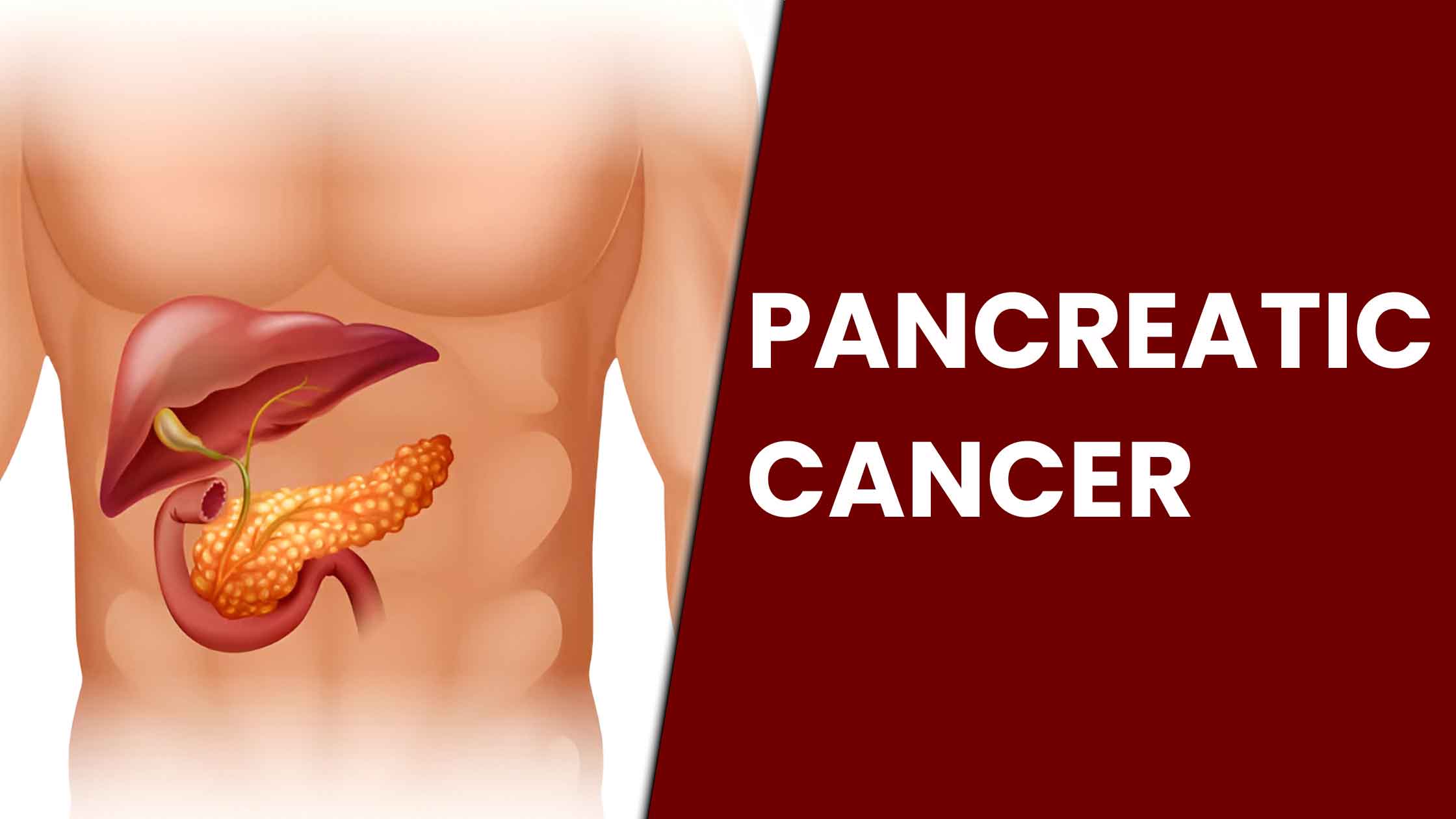What is Pancreas?
The pancreas is a remarkable organ of the digestive and endocrine systems known for its intricate structure and vital function. It plays a crucial role in controlling blood sugar levels by producing insulin and helps digestion by releasing enzymes that break down food particles. It has specialized cells that work harmoniously as both endocrine and exocrine function showing a remarkable adaptability. It is located deep in the abdomen, behind the stomach, and near the small intestine at the junction where food transitions from stomach to intestine. This location enables it to release digestive enzymes into the intestine aiding in the breakdown of carbohydrates, proteins and fats. It regulates the blood glucose through a coordinated action of 2 key hormones it secretes, insulin and glucagon.
What is pancreatic cancer and what causes it?
Pancreatic cancer develops when the DNA in the pancreas cells gets mutated. These mutations result in disruption of normal cell regulation, causing cells to become rouge. These mutations can be a result of genetic inheritance or chronic inflammation or lifestyle factors that can create oxidative stress and chronic inflammation in pancreatic cells resulting in cancer. The causes of pancreatic cancer are still not well understood but a few commonly known risk factors that cause pancreatic cancer include smoking, chronic pancreatitis (alcohol and gallbladder stones), obesity, diabetes and family history. Obesity increases the risk of pancreatic cancer by up to 20-50%. The excess accumulated body fat can lead to chronic inflammation, progressive insulin resistance and higher levels of insulin and insulin-like growth factors in the body which promote abnormal cell proliferation resulting in pancreatic cancer. Similarly smoking increases the risk by 20-30% compared to nonsmokers.
Which is the most important risk factor known to cause pancreatic cancer?
Of the risk factors mentioned, smoking is considered the most important modifiable risk factor for pancreatic cancer. Smokers are twice as likely as nonsmokers to develop pancreatic cancer, and the risk increases with the number of cigarettes per day and duration of smoking. People who quit smoking have a lower risk of pancreatic cancer, which is comparable to nonsmokers after 20 years.
How common is pancreatic cancer?
Pancreatic cancer is the 4th leading cause of cancer deaths in the west. Pancreatic cancer has a relatively lower incidence in India compared to the west. The incidence rate is at about 1-2 cases per 1,00,000 population annually. In India, pancreatic cancer cases are commonly seen in states like Maharashtra, New Delhi, Tamil Nadu and Karnataka. However, due to limited data available with cancer registries, the exact regional prevalence is challenging to determine.
Why is it called a silent killer?
One of the drawbacks of pancreatic cancer is it often goes undetected in its early stages due to its deep anatomical location in the abdomen. The symptoms do not manifest till it reaches an advanced stage which is why it is often referred to as a silent killer. Pancreatic cancer is commonly seen in individuals over the age of 65. It is one of the most lethal cancers known to mankind with a dismal 5-year survival rate of around 5-9% largely due to the complexities in its biology and management. The early signs and symptoms usually include yellowish discoloration of skin and eyes (jaundice), loss of appetite, weight loss, back pain or diabetes of recent onset.
How is pancreatic cancer treated?
Pancreatic cancer treatment options include surgery, chemotherapy, radiation and targeted therapies alone or in combinations depending on the stage at presentation. Surgery is an option if diagnosed early. Chemotherapy and radiation are used alone or in combination with surgery. In combination approaches, soon after the recovery from surgery, the chemotherapy is often given over several cycles which have their common side effects like fatigue, nausea, vomiting and hair loss. The combination treatment goes on for over 6 to 8 months period. During this treatment, nutrition rich in high proteins and vitamins taken in small frequent meals is advised. The meal should contain an easy-to-digest diet with lean proteins, healthy fats and complex carbohydrates.
Why are the complications and deaths high with surgery of the pancreas?
Surgery of the pancreas is technically demanding, requiring a surgeon with a good amount of experience and knowledge in dealing with extreme situations. The mortality rate following the surgery is as high as 10-15% even in specialized centres with experienced surgeons. However, the rates could be higher in low-volume centres. Complications too remain a concern with various studies showing complication rates of 30-50% following the surgery. The patients must choose centres with strong track records in pancreatic surgeries to minimize the overall risks. It is important to understand that choosing a skilled surgeon who specializes in pancreatic cancer can impact survival rates.
Why is a second opinion important in pancreatic cancer treatment?
A second opinion especially in pancreatic cancer treatment is important as it provides an additional perspective on treatment options and the potential outcomes. It also empowers the patients and relatives with the knowledge of newer therapies and a more personalized treatment approach.
What is new in pancreatic cancer treatment?
New treatments for pancreatic cancer include immunotherapy, which stimulates or suppresses the immune system to help the body fight cancer. Other approaches are targeted therapies that attack specific cancer cell molecules, intraoperative radiation delivering a high dose during surgery, proton beam radiation to reduce harm to nearby healthy cells, and new chemotherapy drug combinations being tested in clinical trials.
What is the caregiver’s role?
The patient caregiver’s role is very important in providing essential support by helping with good meal preparation, managing the necessary medications and providing emotional support and a comforting environment. The recent advances in pancreatic cancer treatment include targeted therapies aimed at specific genetic mutations, immunotherapy and minimally invasive surgical techniques.


